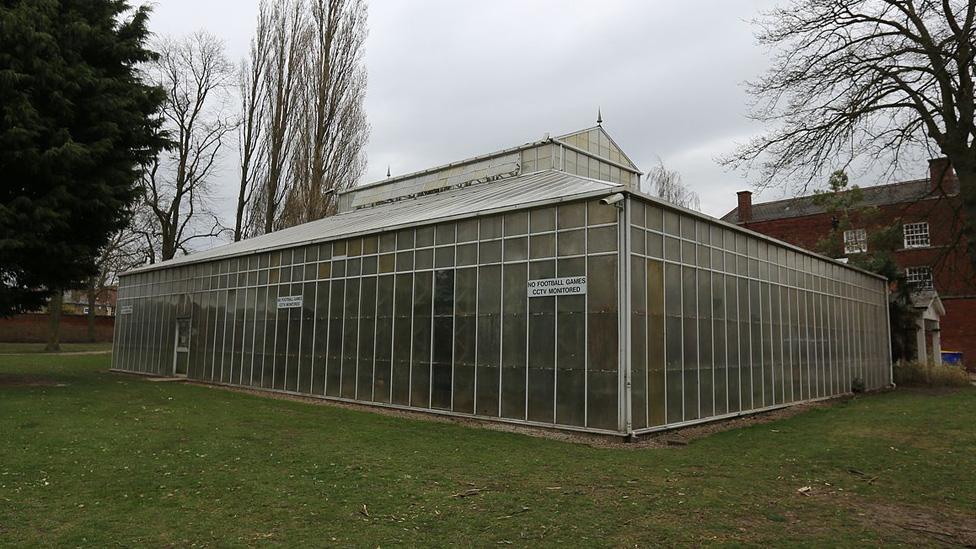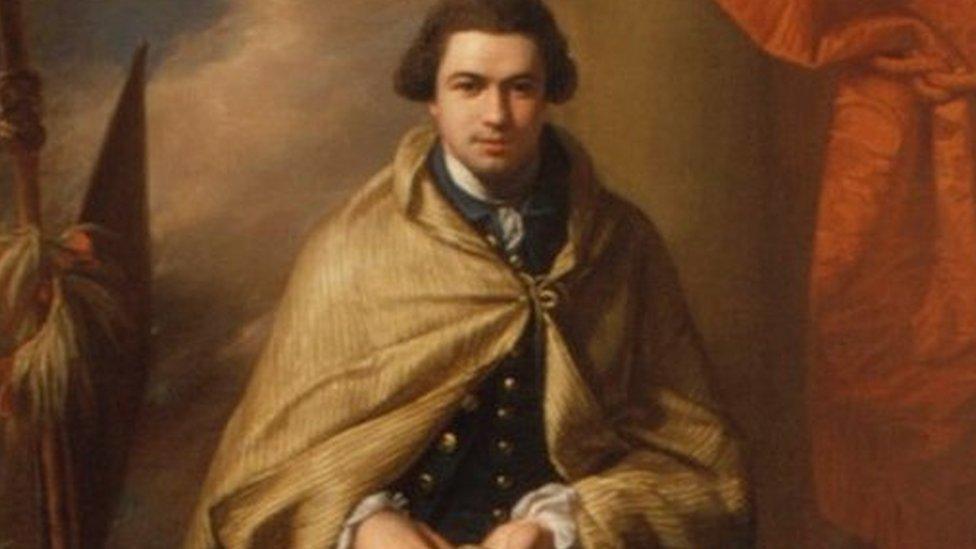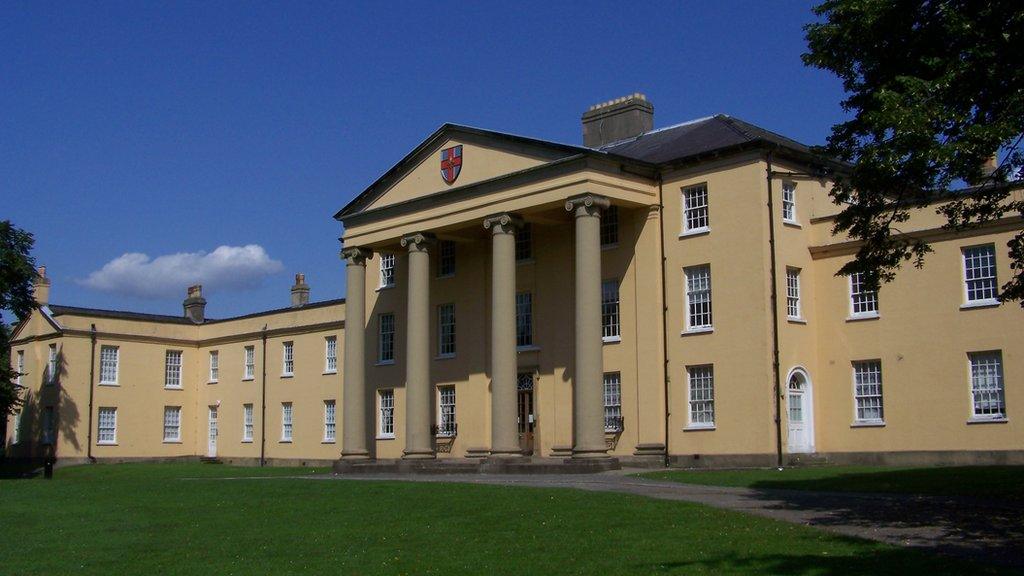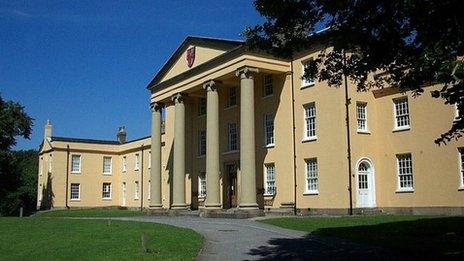Sir Joseph Banks conservatory to house crocodiles at Woodside
- Published

The conservatory was due to be demolished as part of a redevelopment
A glasshouse built in honour of British explorer Sir Joseph Banks has been saved from demolition - and will become home to crocodiles and red pandas.
The building was to be pulled down as part of a redevelopment of the Lawn complex in Lincoln.
Bosses at Woodside Wildlife Park have now stepped in to save it and will move it to their site near Langworth.
It will be used as an attraction housing exotic animals and coral reef aquariums.
The conservatory is named after the Lincolnshire botanist who travelled with Captain James Cook on his first voyage to the South Pacific in 1768.

The 18th Century botanist sailed with Cook to the uncharted lands of the South Pacific, including Tahiti, New Zealand and Australia
The Grade II listed Lawn complex was sold by City of Lincoln Council last year to the Stokes coffee company which plans to open a cafe and museum on the site.
Neil Mumby, director of the wildlife park, said he wanted to save the building, which housed exotic plants and Koi carp and was popular with generations of families.
"I, like a lot of people, spent my younger days coming here and bringing my children here," he said.
"When I heard that it was being demolished and closing down, I thought we were probably in as good a place as anybody to save it."
Once rebuilt, the conservatory will be used for education and conservation projects, while retaining its heritage as a journey of discovery, Mr Mumby said.
He said the plan to house crocodiles, red pandas and exotic plants inside it would "highlight changes in our planet" since Sir Joseph Banks' voyage of discovery.
The council said it had donated a parcel of land at the Lawn to the Sir Joseph Banks Society to build a new conservatory.
- Published8 May 2014

- Published13 January 2012
